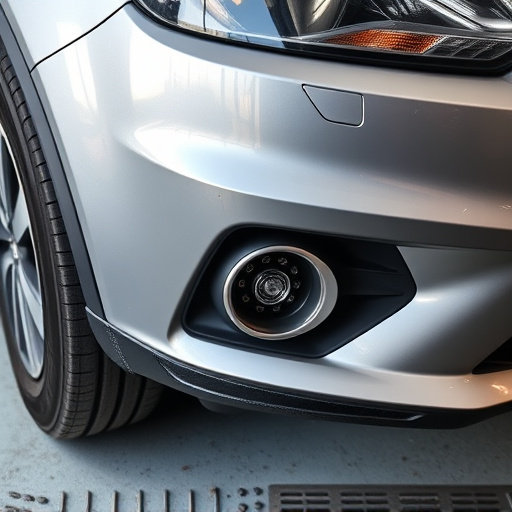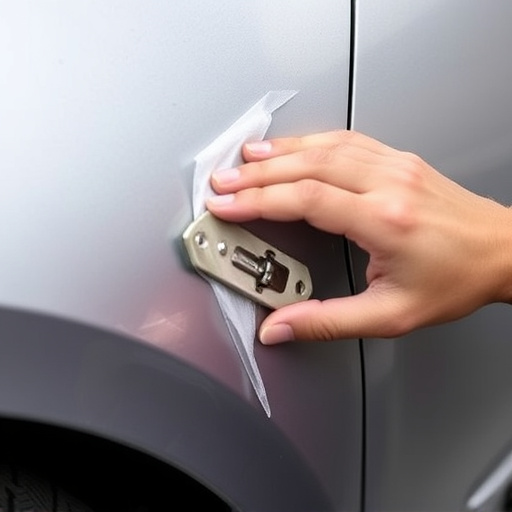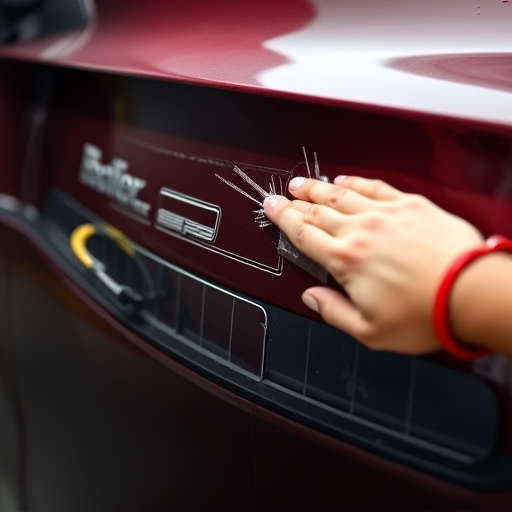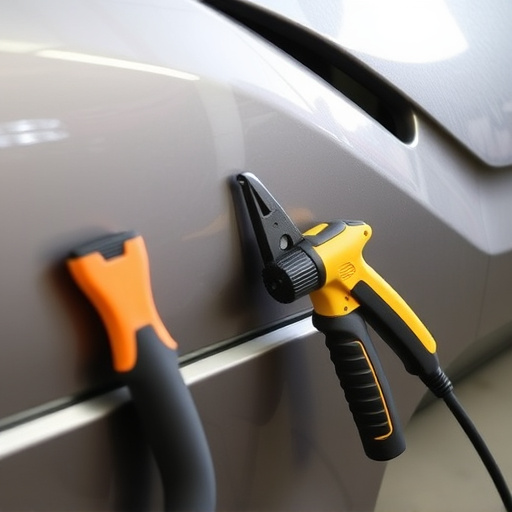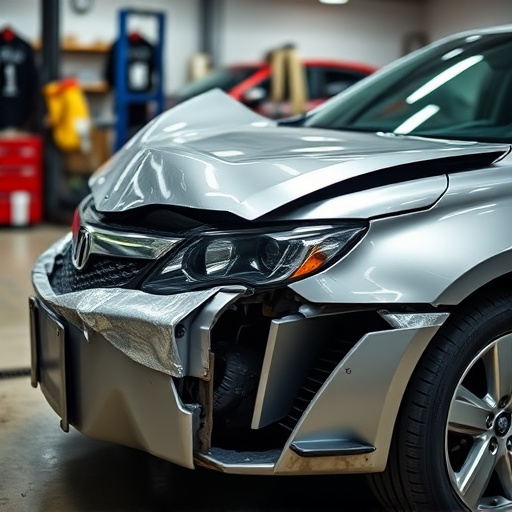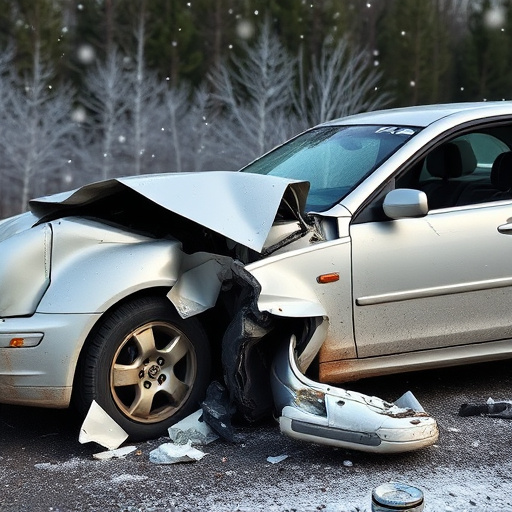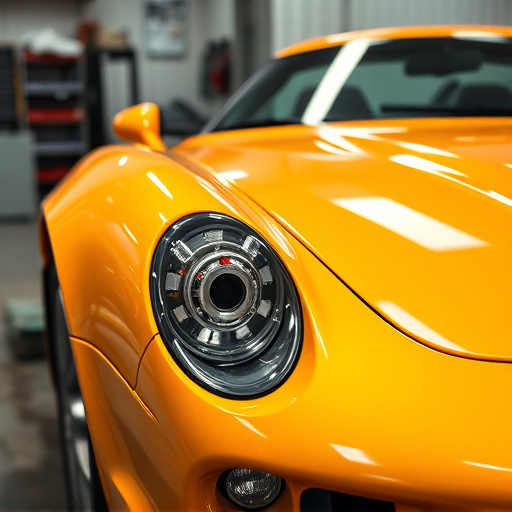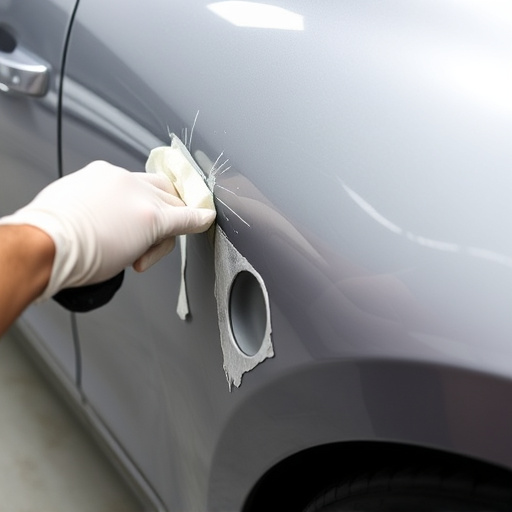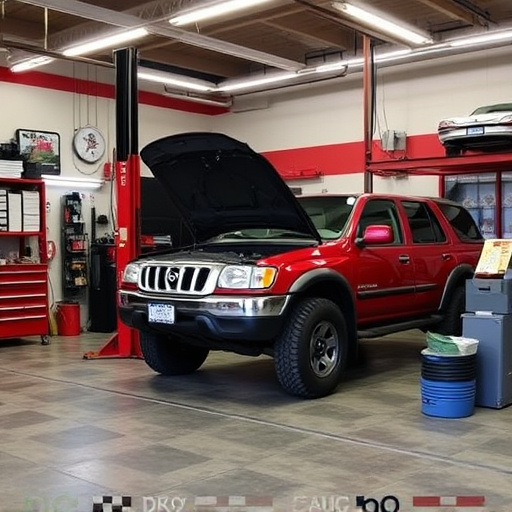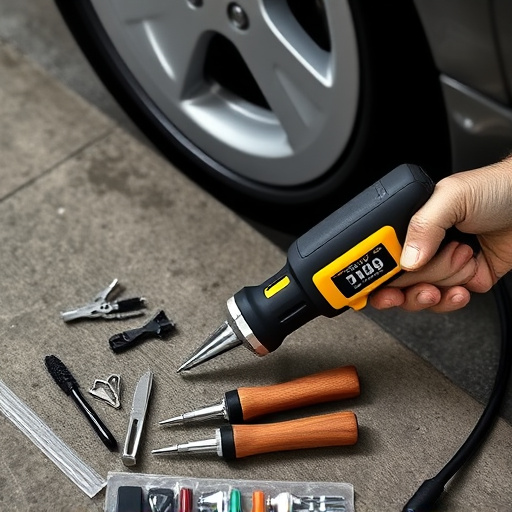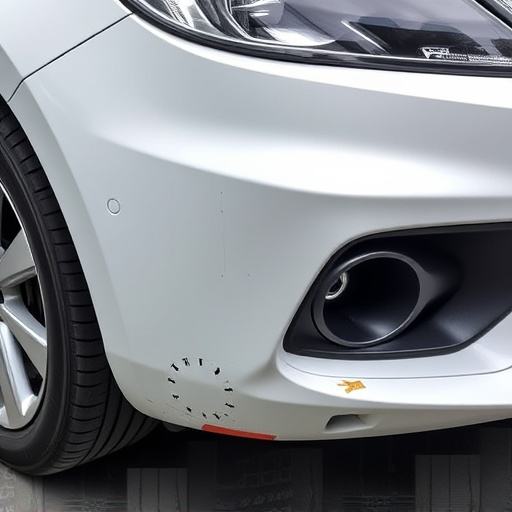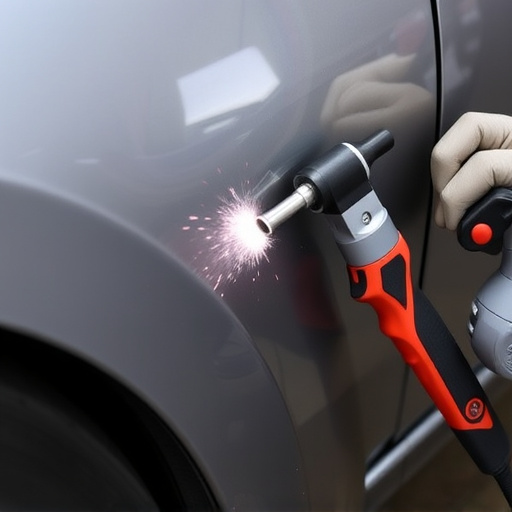Mercedes Night Vision technology, powered by thermal imaging, enhances driver safety in low light but demands meticulous Mercedes night vision calibration for optimal performance. Regular calibration fine-tunes sensor interpretation of heat signatures, boosting driver confidence and safety during night driving or poor visibility. This critical process minimizes risks from sensor malfunctions, ensuring advanced driver-assistance systems (ADAS) prevent accidents and improve awareness. Proper maintenance, including hail damage repair and regular tire services, is essential for Mercedes night vision systems' reliability. Schedule routine Mercedes night vision calibration checks at recommended intervals to avoid malfunctions and maximize safety in low-light conditions.
Mercedes-Benz’s advanced Night Vision technology is designed to enhance driver safety in low-light conditions, using thermal imaging to detect objects and pedestrians. However, like any sophisticated sensor system, it requires proper care and maintenance to function optimally. This article explores the critical role of Mercedes night vision calibration in mitigating risks associated with sensor malfunction, ensuring drivers stay protected on the road. We’ll delve into the technology’s sensitivity, the benefits of regular calibration checks, and practical tips for maintaining this essential safety feature.
- Understanding Mercedes Night Vision Technology and Its Sensitivity
- The Role of Calibration in Ensuring Optimal Sensor Performance
- Best Practices for Regular Night Vision Calibration Checks
Understanding Mercedes Night Vision Technology and Its Sensitivity
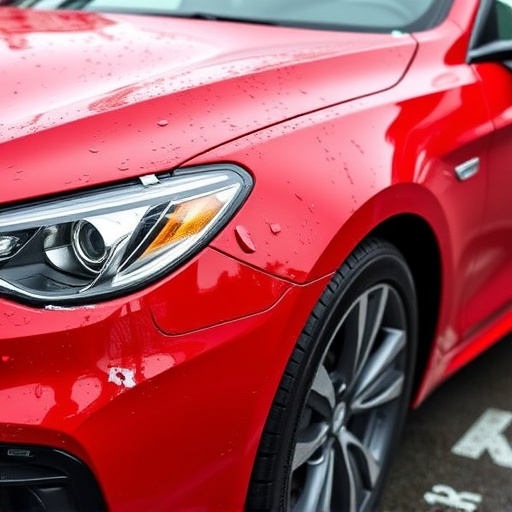
Mercedes Night Vision technology is a cutting-edge feature designed to enhance driver safety during low-light conditions. This advanced system uses thermal imaging cameras to detect heat signatures, allowing drivers to see through darkness with remarkable clarity. However, like any sophisticated sensor, it requires proper calibration to function optimally and mitigate potential risks of malfunction.
The sensitivity of Mercedes Night Vision technology means even minor adjustments or external factors can impact its performance. Regular Mercedes night vision calibration ensures the system accurately interprets heat signatures, preventing false readings and enhancing driver confidence. It’s akin to fine-tuning a high-performance vehicle’s engine; proper care ensures peak efficiency and safety, especially in challenging driving conditions, where every detail counts when navigating the road at night or in poor visibility.
The Role of Calibration in Ensuring Optimal Sensor Performance
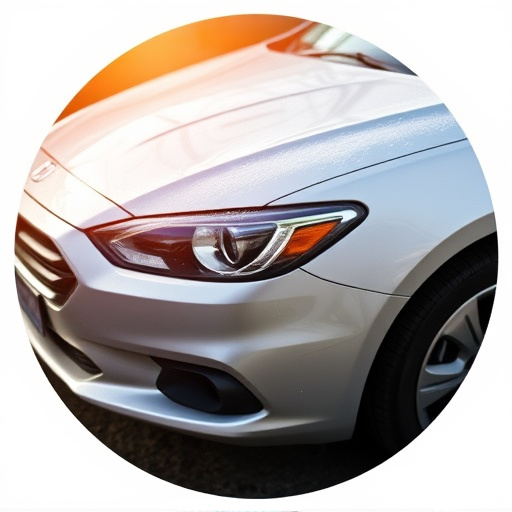
Mercedes night vision calibration plays a pivotal role in maintaining the optimal performance of the vehicle’s advanced driver-assistance systems (ADAS). Regular and precise calibration ensures that the sensors function accurately, providing drivers with reliable information for safer navigation, especially in low-light conditions. This process involves meticulously adjusting various parameters to guarantee the sensor’s ability to distinguish objects and interpret surroundings accurately.
By undergoing hail damage repair or regular auto repair shop maintenance, including tire services, vehicles can benefit from enhanced safety features. Night vision calibration is particularly crucial as it minimizes the risks associated with sensor malfunctions, ensuring the ADAS remains effective in enhancing driver awareness and preventing potential accidents.
Best Practices for Regular Night Vision Calibration Checks
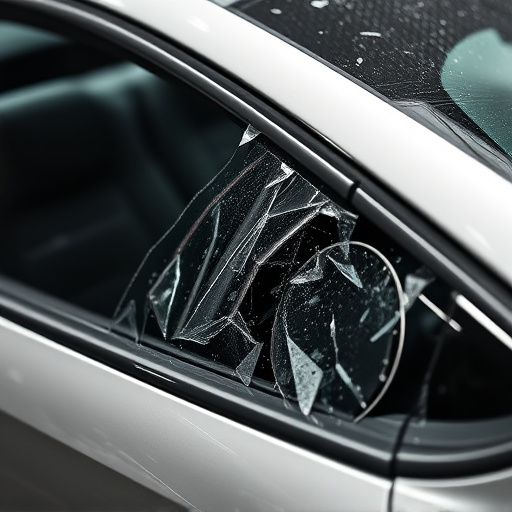
Regular calibration checks are paramount for maintaining the reliability of Mercedes night vision systems. Here are best practices to ensure optimal performance and minimize the risk of sensor malfunctions. First, schedule routine checks at recommended intervals specified by the vehicle manufacturer, usually as part of regular maintenance services. This involves exposing the sensors to controlled lighting conditions to calibrate their sensitivity accurately. Second, if you notice any anomalies in night vision functionality, like distorted images or reduced clarity, prompt attention is crucial. A visit to a reputable collision repair center or auto repair shop can help diagnose and rectify issues before they escalate, ensuring your safety on the road. Additionally, professional automotive body work specialists equipped with specialized tools can perform detailed inspections and calibrations, enhancing the system’s longevity and reliability in low-light conditions.
Mercedes night vision calibration is an essential practice that safeguards against potential sensor malfunctions, ensuring optimal performance for drivers. By understanding the sensitivity of this advanced technology and implementing regular calibration checks, owners can maximize their safety and driving experience in low-light conditions. Regular maintenance and adherence to best practices are key to keeping Mercedes’ night vision system reliable and effective.
